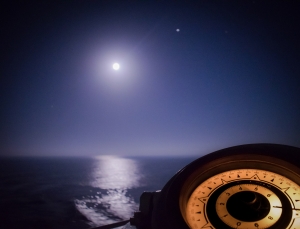


(Posted on 11/03/21)
A.P. Moller - Maersk A/S, Fleet Management Limited, Keppel Offshore & Marine, Maersk Mc-Kinney Moller Center for Zero Carbon Shipping, Sumitomo Corporation and Yara International ASA have announced that the parties have entered into a Memorandum of Understanding to jointly conduct a feasibility study (hereinafter “Study”) with the aim to be one of the pioneers in establishing a comprehensive and competitive supply chain for the provision of green ammonia ship-to-ship bunkering at the Port of Singapore, the largest bunkering port in the world.
Emitting zero CO2 when combusted, ammonia has long been considered as one of the most promising alternative marine fuels to reduce greenhouse gas (GHG) emissions within the shipping industry, which is in line with the International Maritime Organization (IMO) strategy to reduce CO2 emission by 2050. In particular, green ammonia possesses great potential as it is produced from only renewable electricity, water and air with no CO2 emission.
The Study aims to cover the entire end-to-end supply chain of ammonia bunkering, which includes the development of a cost-effective green ammonia supply chain, design of ammonia bunkering vessels, as well as related supply chain infrastructure. Relevant government agencies and experts in Singapore will be engaged in working towards the standardization of safe operation and regulations. The study will assess the supply of ammonia including potential synergies with Liquefied Petroleum Gas (LPG) as a starting point. Considering the comparable requirements for mild refrigerated storage, vessels or barges initially designed for LPG can also handle brown, blue and green ammonia.
Mr Morten Bo Christiansen, VP and Head of Decarbonisation at A.P. Moller-Maersk, said “Alongside Methanol, at A. P. Moller-Maersk we see green ammonia as an important future fuel for the decarbonisation of our fleet. A dual fuel Ammonia engine is currently under development, but for green ammonia to fuel our vessels in the future we also have supply, infrastructure and safety related challenges to solve, not least when it comes to bunkering operations. We are pleased to work with renowned companies in this field to pave the way for Ammonia as a future fuel to decarbonise global shipping.”
Mr Kishore Rajvanshy, Managing Director at Fleet Management, said “We are very pleased to support the development of the green transition pathway for our industry. We participate with our technical expertise across ship types to provide holistic solutions to sustainability, and alongside other alternative fuels such as methanol we feel ammonia will play a significant role”.
Mr Chris Ong, CEO of Keppel Offshore & Marine, said, “There are multiple routes to the decarbonisation of the marine industry and we are pleased to be able to leverage our expertise in engineering and bunkering to spearhead the development of cleaner marine fuels such as ammonia. This includes the design of ammonia bunkering and ammonia-powered vessels, as well as developing the value chain necessary for the adoption of ammonia. This is in line with Keppel’s Vision 2030, which includes seizing opportunities in new energy.”
AtoB@C Shipping, a subsidiary of ESL Shipping, has announced the successful delivery of Fleximar, the... Read more
Western Bulk, together with reputable Norwegian partners A/S J. Ludwig Mowinckels Rederi, Premium Maritime... Read more
Pacific Basin Shipping Limited, one of the world’s leading dry bulk shipping companies, has announced... Read more
Columbia Group anticipates a period of strong expansion as an increasing number of international shipowners... Read more
Norse?Ship Management has expanded its use of Smart Ship Hub’s high frequency sensor data and... Read more
As the maritime industry gears up to welcome the IMO’s STCW bullying and harassment training amendments... Read more
NORDEN has acquired the cargo activities of Taylor Maritime in Southern Africa (previously operated... Read more
Philippos Ioulianou, Managing Director of EmissionLink, has warned the IMO’s decision to delay... Read more
VIKAND has highlighted the need for cultural change in the maritime sector as reports of bullying, harassment... Read more
The maritime industry is experiencing a period of significant transformation, driven by rapidly evolving... Read more